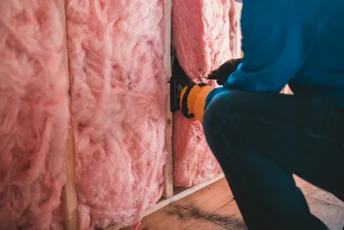Written by: Karina Gerdes - Group Head of Sustainability
There are various benefits to improving your home’s energy efficiency, counteracting the rising energy bills homeowners are still faced with is just one of them. In this article, you can learn what changes, big and small, can make a difference to your home’s energy consumption.
Understanding your energy bill
Before you can really start lowering your energy bills, it’s important to understand what’s actually going on with them. This makes it easier to identify areas you can improve on, and where you can make the most savings.
Though bills from your various suppliers will look different, they should all contain the same base information. This includes:
- Personal information
- Your customer reference number
- The tariff you’re currently on for gas and electricity
- The tariff comparison rate
- The amount of gas and electricity you’ve used in the past year
- A record of the gas and electricity readings
- The amount of money due to your energy provider.
Next, compare your usage with local averages in your area and make sure that the tariff rate you’re on is competitive. If it’s not, it may be worth switching providers. You can use comparison sites or phone individual companies to see if you can save any money by switching.
It may even be worth taking this figure to your existing energy provider and asking whether they can match it before you leave.
Quick tips
Understandably, with the current energy crisis and rising bills, you may find it difficult to find energy providers that are well below your current rate. This may not make it worth swapping, but it doesn’t mean you’re out of options.
There are both short and long-term changes you can make to your home and the way you use energy that could save you money each month, plus every step you take can get you closer to the UK's net zero goals.
Turn off standby mode
Most appliances can be turned off at the wall without disrupting their settings. Generally, when you’re not using an electric device it goes into standby mode, which is similar to a sleep cycle. They may not be using their max power here, but they are still pulling power.
This doesn’t apply to appliances like your fridge, but consider turning off other energy heavy appliances when you’re not using them. These can include:
- Games consoles
- TVs
- Radios and speakers
- Computers
- Kitchen appliances (like your microwave)
Consider lighting changes
It bears repeating that turning off a light when you’re not using it is a great way to make a quick save with your energy bill, but it’s also worth considering changing your lightbulbs completely.
Traditional light bulbs (ones that feel hot when you touch them) are incredibly inefficient. In contrast, modern LED bulbs use less power and last longer. In fact, they’re about 80% more efficient than incandescent bulbs. You could also opt for smart LEDs, which means you can turn them on and off remotely.
Consider a smart meter
A smart meter can prove a great tool to track and monitor your daily energy expenditure. You can get a smart meter for both gas and electricity and most energy companies provide them with no upfront cost.
How do smart meters work?
Your smart meter will send your daily usage directly to your energy/gas supplier which means you’ll only pay for what you use. Standard meters have often charged consumers based on their monthly estimated use rather than what they actually use.
You’ll also receive your own in-home smart meter display. These allow you to see what you’re using, and spending, every day on gas or electricity. It communicates wirelessly with your smart meters displaying how much energy you’ve used for the day and how much it costs – down to the penny.
Smart Energy GB can show you if your supplier provides free smart meters and how to order one. You can check them out here.
Turn down your water heater
A quick and easy way to be more energy efficient is to simply turn down the temperature on your water heater. Your water heater accounts for nearly 20% of your monthly energy bill. If your water temperature is higher than it needs to be, you’ll likely be paying a higher utility bill.
The optimal temperature for your water heater is 48°c (118.4°f). Try turning your water heater down to this temperature if it’s currently higher than this. It’s a quick fix that could save you hundreds of pounds down the line.
Install tap aerators
A tap aerator, or water flow regulator, attaches to the end of a tap to control the amount of water that flows from the tap. The more water that is restricted, the more money you can save on your monthly water bill.
Taps can flow at a rate of 18 litres per minute. A tap aerator can reduce this to 6 litres per minute. We’re all guilty of leaving the taps on for a little longer than we should when washing up; installing a tap aerator can reduce water waste and slash your water bill by a considerable amount.
Eco shower heads
An eco shower head restricts water flow helping to reduce the volume of water used by the shower. Some models can reduce the volume of water by 50% without affecting the water pressure.
Most old shower heads can produce 15-20 litres of water per minute. An eco-friendly shower head can reduce this to around 6 litres per minute – without sacrificing water pressure.
You can normally pick up an eco shower head anywhere from £10 to £100 (depending on quality).
Replace your window seals
If you’re beginning to notice a draught coming from your window, you’ll likely need to replace your window seals. This will help you keep cold air out and warm air in, which is especially helpful during the winter months to help insulate your home and reduce heating bills.
Other signs to look out for that your window seals need replacing are condensation and mould appearing around your windows or window seals.
Make considered choices
Ultimately, what’s going to make the most difference in the short term is making considered and deliberate choices about your energy consumption. There are several things you can do:
- Run fewer (but fuller) loads of washing
- Use eco settings on appliances wherever possible
- Avoid the tumble dryer or use a tumble dryer ball to reduce the time needed in the dryer
- Avoid heating empty rooms
- Keep your curtains closed in winter
- Keep your radiators clean (and make sure nothing is blocking them)
- Insulate your boiler with an insulation jacket
- Keep your thermostat a degree or two lower and remember to turn it off if you’re not going to be home
- Draught proof your doors and windows
Long-term changes
Quick changes are all well and good, but what’s going to save you the most money in the long run is changing the way your home works with energy. This involves more upfront costs, with the goal of saving money long term.
Here are a few things to consider to really ramp up your home’s energy efficiency:
- Switch to double glazed windows
- Swap appliances for energy efficient units
- Use smart, automated devices in your home
- Update your heating system
- Insulate the internal or external walls of your house
- Ensure your home’s loft insulation is efficient
Future investments
Conduct an energy audit
You may not have heard of an energy audit before, however, they’re a great way to get started when looking at improving the energy efficiency of your home. An energy audit is an inspection of how energy flows throughout your home. This is done in order to understand the energy efficiency of the home and if there are any opportunities to improve it.
The audit will include anything from a blower door test (to see how airtight the house is), or thermographic scanning to see where the home is losing heat (so you can see where to install insulation). The average cost of an energy audit can range anywhere from £100 to £400.
Savings can quickly add up and you could see savings of up to 25% of your yearly energy consumption with an energy audit (assuming you make efforts to fix the issues outlined in the audit).
Install Energy Star appliances
Every appliance you have in your home will have an energy efficiency rating. This rating displays how much energy they use compared to similar appliances. They range from A to G, with A being the most efficient and G being the least.
Simply put, a fridge freezer unit that has an ‘A’ energy efficiency rating will use considerably less energy than one rated ‘G’, for example.
If you want to be more energy efficient and save money in the long run, consider upscaling your current appliances to those with high energy efficiency ratings. While they may incur a higher cost in comparison to similar appliances, you’ll make back the extra you spend in savings in the years to come.
Switch heating source
Your heating is likely going to be one of your biggest expenditures during the colder months of the year. Making sure your heating is as energy efficient as possible is a great way to cut down your energy bill.
There are a few different kinds of heating sources: gas boilers, oil, electric boilers, and biomass boilers. Each type of heating source has its advantages and disadvantages, so make sure to check out each type to see what works best for you.
You could also look into heat pumps or solar panels to provide heat to the home. Solar panels generate energy for your entire home, not just your heating, and are effectively free to run once they’re installed, potentially generating annual savings of £150-£450.
Retrofitting your home
Did you know that improving your home’s efficiency could potentially help you secure a better mortgage rate and protect your property’s value?
At Mortgage Advice Bureau, we’re committed to helping our customers live more comfortably in energy-efficient homes, without the need for a high-interest loan.
Our expert advisers can help you finance the improvements, making sure you understand the costs involved so that you can make an informed decision. Click here to find out more about how we can help.
How do I qualify for a green mortgage?
One significant step towards promoting green living is the availability of green mortgages. These mortgages are designed to encourage environmentally responsible home improvements and sustainable living.
< 40 views | 1 year ago
Nine ways to reduce waste in your home
In a world grappling with environmental challenges, reducing waste has become a responsibility for individuals and families across the UK.
< 40 views | 1 year ago
What does retrofitting mean?
Want your home to be more eco-friendly but don't know where to start? Learn everything you need here, from benefits to budget, government support, and finance options.
< 50 views | 10 months ago
No posts currently available
Ready for some advice? - arrange a call back
We play by the book. Here's what you need to know
Your home may be repossessed if you do not keep up repayments on your mortgage.
There may be a fee for mortgage advice. The actual amount you pay will depend on your circumstances. The fee is up to 1% but a typical fee is 0.3% of the amount borrowed.




